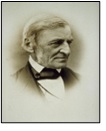Transcendentalists:
America’s First Counterculture –
Emerson, Thoreau and Their Circle
Hybrid – Thursday 1:10 pm – 2:50 pm
Sept. 21, 28, Oct. 5, 12, 19, 26, Nov. 2, 9
From the rise of Jacksonian Populism to American democracy’s collapse into civil war, a small group of men and women challenged the orthodoxies of a time much like our own. And, what began as a local revolt against their elders by a younger generation of Boston clergy soon unleashed a national upheaval. By the time it ended, America’s first countercultural movement permanently changed how we think about literature, philosophy, religion, nature, education, individual conscience, the industrial revolution, the plight of labor, feminism, abolitionism and much more. Ralph Waldo Emerson, Margaret Fuller and Henry David Thoreau were its leading lights, but many others shined too. Focusing on excerpts from the writing of these thinkers, we trace the development and impact of Transcendentalism by discussing what inspired this generation of thinkers, what they had to say about their own times and what they have to teach us about ours.
Class materials will be distributed electronically. But students are encouraged to purchase a copy of The American Transcendentalists: Essential Writings, edited by Lawrence Buell and published by the Modern Library.
- Week 1: “An original relation to the universe” – The origins of Transcendentalism.
- Week 2: The sage of Concord – Emerson’s life and thought.
- Week 3: The first counterculture – What made Concord the center of a movement.
- Week 4: Feminism – The impact of Margaret Fuller and the nation’s first feminists.
- Week 5: Abolition – How Transcendentalism inspired abolitionism.
- Week 6: To live deliberately – What Thoreau believed.
- Week 7: Life in the woods – What makes Walden a masterpiece.
- Week 8: “In wildness is the preservation of the world” – What is the legacy of Transcendentalis in an age of climate crisis?
Steven Phillips has an MA in literature from the University of Chicago and an MFA in filmmaking from NYU’s Tisch School of the Arts. He was creative director and partner of a production company for film, video, media installations and staged productions. Since retiring, he has worked with community-service, public humanities and higher education nonprofits, as well as earning an MA in American Studies from Columbia University.


